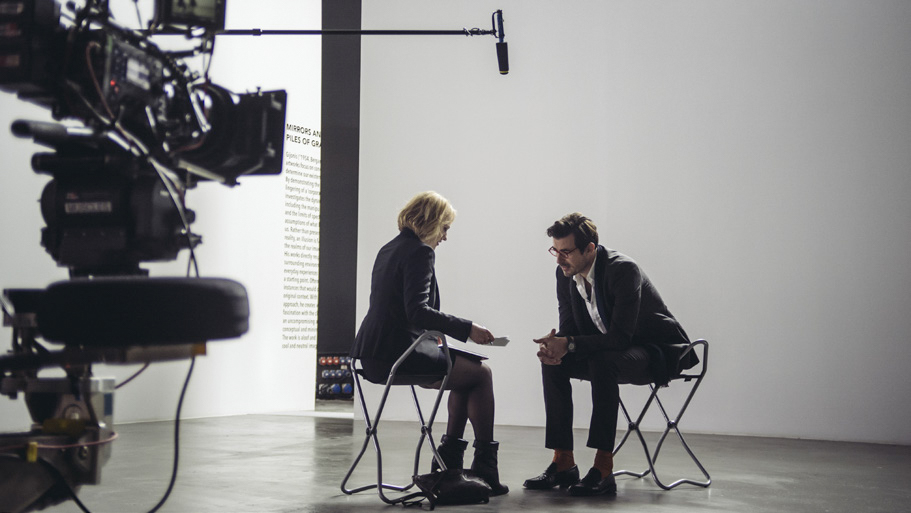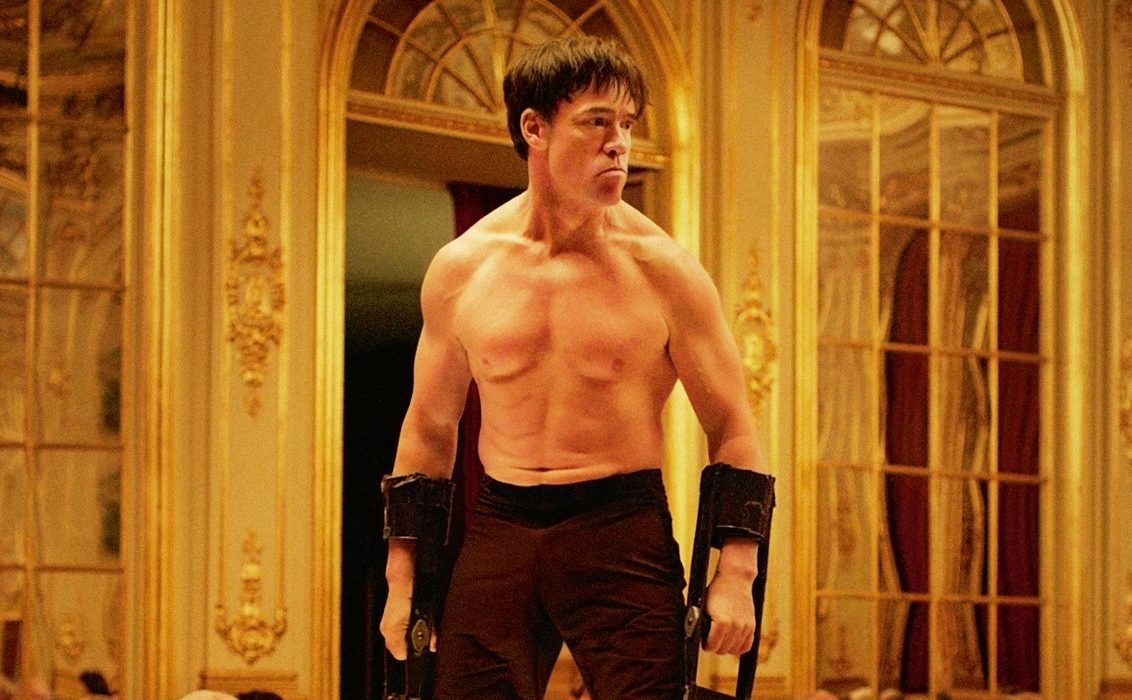At first glance, Ruben Östlund’s The Square appears solely to be a satirical look at an art world off the rails. Yet the film is interested in a broader social critique; we ourselves are not exempt from contributing to the insane ongoings of the fictional X-Royal Museum in Sweden.
Winner of the Palme d’Or at the 2017 Cannes Film Festival, The Square has no shortage of overblown on-screen ridiculousness, from painting chimpanzees to palace raves, but we recognize realities of the contemporary art world and its penchant for elitism within it.

Direct parallels can be seen between events at the X-Royal and those in real-world art spaces. Security personnel watch museum visitors give galleries barely a second of their attention, and a millennial duo from an outside marketing agency infuriate with their self-assurance. Museum events drip in inscrutable art-world language, and a custodian casually vacuums up an installation made up of gravel mounds.
Through his provocative live performance, “The Jungle,” the artist Oleg—brilliantly played in all his discomforting glory by a bare-chested, crawling Terry Notary—runs through a grand dinner gala attacking event attendees. The limits of violence that we are trained to transform and accept in the name of art are tested here.

In Claes Bang’s performance as the suave X-Royal curator Christian Nielsen, we see the larger questions that Östlund raises about the art world and its detachment from reality. The film regularly spotlights this character’s interactions with disenfranchised members of Swedish society, specifically beggars and panhandlers. As the film shifts between the cash-flush private museum and the outside world, the curator struggles to balance these unwelcome interruptions to his work and family lives.

Though The Square might let on as a film centered solely on bashing indulgent art-world practices, its commentary extends far beyond to implicate members of any audience.


